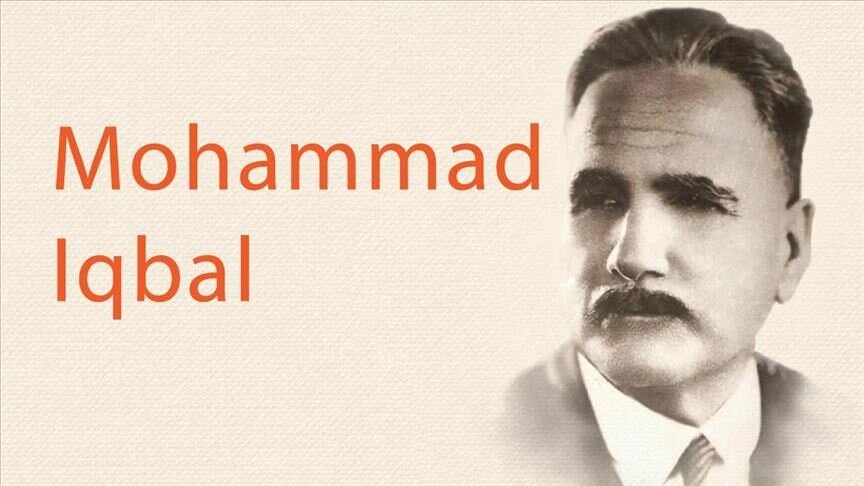Iqbal Lahori on Palestine: A test for courage and pride

TEHRAN - The Palestine problem has entered its 8th decade. The international powers have been ignoring this issue for seventy years. During the first half of the previous century, when British imperialism gave birth to this issue, no one could imagine how much it would affect international peace and that the Palestinians would have to pay such a heavy price for their independence.
This was the time when the British imperialism reigned almost all over the world. The British policy of steadily settling the Jews in Palestine resulted in direct clash between the Muslims and the Jews in the third decade of the 20th century. This series of clashes resulted in continuous bloodshed during 1928, 1929, 1933 and 1939. In August 1929, during a skirmish in Jerusalem, 116 Palestinians were killed and 232 got injured. Firing by the British authorities caused most of the losses. The news of this incident deeply disturbed the Muslims of the subcontinent. A protest rally was held outside the Delhi Gate Lahore which was attended by the Muslims belonging to all schools of thought. Pakistan’s national poet Allama Muhammad Iqbal Lahori also attended the rally. Allama Muhammad Iqbal Lahori was a poet, a jurist and a politician. While addressing the rally, Iqbal said:
“The Muslims, their wives and children are being killed in Palestine. The centre of this tragedy is Jerusalem, where Al-Aqsa Mosque is situated. This mosque is associated with the occasion of Mi’raj Mubarak. Mi’raj is a religious truth. Which is associated with the deepest sentiments of the Muslims. Historically and legally the Jews are not justified in their claim over Al-Aqsa Mosque. In 1914 the British statesmen used the Jews for their own purpose. They promoted the Zionist movement and used such methods for the attainment of their goals which brought horrible results.
The Muslims, their women and children are being slaughtered like sheep and goats…. The Zionist movement will not bring any pleasant results for the Muslims. On the contrary, it would harbor unprecedented evil…?”
If we look at Iqbal’s life, he is always found associated with the Palestine cause. His reactions and feelings on various phases of this crisis are part of history. One can see his letters from 1932-37 in this regard which he wrote to (Quaid e Azam) Mr. Muhammad Ali Jinnah, Maulvi Abdul Haq and Miss Margaret, the leader of National League, London. All these letters are worth reading. An extract from his letter is being presented here which reflects Iqbal’s style of looking at political issues and analyzing them. He wrote his comments on the Palestine Report in a letter to Miss Margraret Farquharson.
“Through wisdom alone comes power; and when power abandons the ways of wisdom and relies upon itself alone, its end is death.”
Iqbal’s prediction came true. The power, which had created the Palestine issue by ignoring the wisdom and morality, became a story of the past. The first part of this extract is a message and an eye-opener for the powers of the present age. Those who ignore wisdom find nothing in the future except danger and defeat.
Iqbal’s deep association with the Palestine cause can also be judged by the fact that he attended possibly every meeting in this connection. During the last year of Iqbal’s life when he was very ill and unable to attend any meeting, the report of the British Royal Commission on Palestine was made public. Muslim League (a Muslim political association in the British India) organized a public meeting in Lahore on 26 July 1937. Iqbal was unable to attend this meeting. However, he sent his written message for the occasion. Urdu translation of Iqbal’s message was read out in this meeting. Iqbal declared that Palestine is a purely Muslim issue. Presenting his analysis in the historical backdrop, Iqbal wrote:
“Modern historical research has doubted even the existence of Peter the Hermit. Even if we assume that the Crusades were an attempt to make Palestine a Christian problem, this attempt was defeated by the victories of Salah-ud-Din. I, therefore, regard Palestine as a purely Muslim problem.'' (Thoughts and Reflections of Iqbal edited by Syed Abdul Vahid: Lahore: 1992 p 369)
According to Iqbal, the Muslims should themselves be the masters of their destiny. He also observed that the Palestine issue was a test for the courage and pride of all the Islamic countries, no matter Arabs or non-Arabs. This is the first Muslim problem which is religious as well as political in nature. Time and history are demanding that the Muslim countries solve this issue
زند گا نی تا کجا بی ذ و ق سیر تا کجا تقدیر تو د ر دست غیر
بر مقا م خو د نیا ئی تا بہ کی ا ستخو انم در یمی نالد چو نی
از بلا ترسی حدیث مصطفیٰ است
مر د ر ا ر و ز بلا روز صفا ا ست
For how long will you live without the taste of success and progress? For how long will you let your destinies be governed by others? For how long will you not recognize your position? You are afraid of hardships? The Holy Prophet (PBUH) had said that the periods of hardship and trial are the tools of development for the brave people. Have you not heard this?
*Zahid Munir Amir is the Professor of the Faculty of Literature and Humanities at the University of Tehran
Leave a Comment